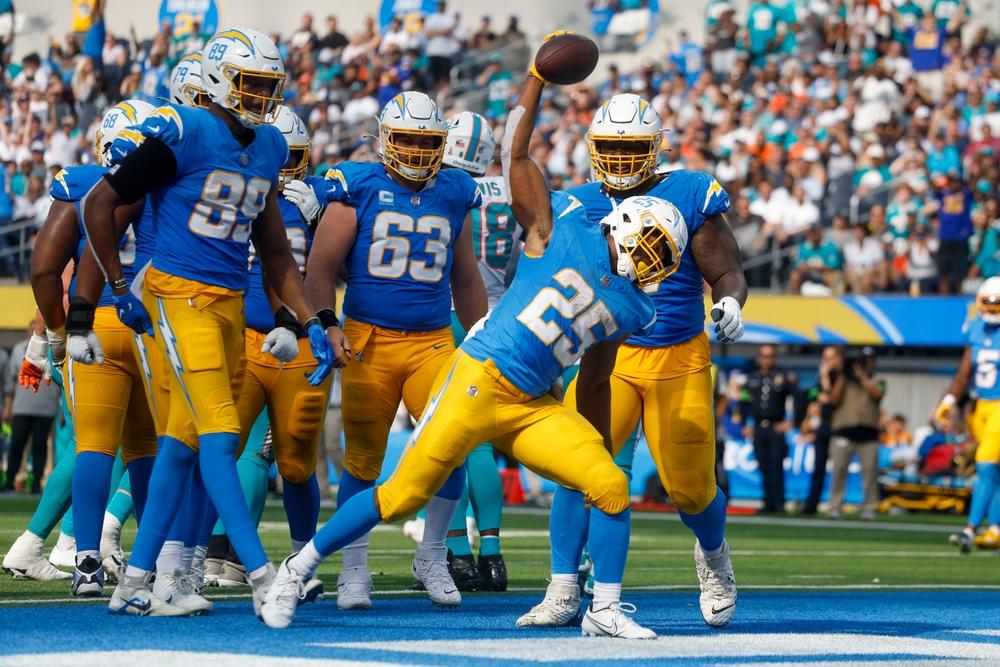Hello and welcome to this week’s Igaming Focus newsletter.
On the slate this week:
- In-play in focus: DraftKings adds Simplebet to SportsIQ acquisition to continue with live betting focus.
- New reports into financial impact of sports betting on low-income U.S. households adds to gloomy atmosphere.
- No-show or sit, and then go? Will operators respond to Massachusetts Gaming Commission’s call to attend meeting on setting limits?
- Under fire: Social sweepstake casinos in crosshairs as GIG takes opportunistic approach.
- Adjusting the play: Better Collective to adjust to Playmaker model as Google update offset by ex-U.S. activities.
- News shorts: DraftKings-White Hat fined, Genius Sports-Kambi, Betsafe exit.

Shutterstock
Live and simple
DraftKings’ acquisition of Simplebet is further confirmation of live betting focus
In-play in focus: DraftKings confirmed its long-mooted acquisition of micro-betting specialist Simplebet at the end of August and although it did not disclose the amount it paid for the tech provider, Simplebet founder Joey Levy said the company had been bought for $195m, with industry observers noting that $70m has been paid upfront.
- Simple IQ: The transaction, which has been on the cards since the spring, also confirms DraftKings’ plans to develop its live betting offering and follows its buyout of data provider SportsIQ in May. In April the number two online sportsbook in the U.S. told analysts that it planned to ramp up live/micro-betting revenues by focusing on in-play volumes.
- Margin call: The move was part of the group’s plans to increase its differentiation credentials to U.S. bettors and boost margins so that they improve “to be more in line with FanDuel”.
- DraftKings’ aim is to generate higher hold levels and despite it not being as productive as parlays when it comes to margins, live betting and the traffic it brings is not negligible.
- In addition, as a betting product it is less widespread in the U.S. at around 40% of handle than it is in Europe (up to 70% of handle in the UK according to Sportradar) and has space in which to grow.
- Speedy markets: DraftKings chief product officer Corey Gottlieb commented that live betting has growth potential and “the proposed acquisition would allow DraftKings to leverage Simplebet’s proprietary technology to create an in-play wagering experience that moves at the speed of sports”.
- Rise of the machines: AI is also set to play an increasingly important role in getting those markets to players and as operators like BetMGM via Entain’s acquisition of Angstrom and Caesars with its ZeroFlucs buyout seek to boost their offerings, product will continue to be a key driver of market share.
- Simplebet was co-founded by Joey Levy as a B2B micro-betting provider which also operated the consumer betting brand Betr. The latter will continue operating and use Huddle Tech as a live betting provider and the Chameleon tech stack it acquired from FansUnite in 2023 to operate its platform.

Unsplash
Critics take aim
Recent research fuels further negative coverage of the industry
Two recent research papers analyzing seven million consumer credit datasets and transaction data from over 230,000 households have claimed that the broad legalization of online sports betting since 2018 has had negative impacts on consumers’ financial health and led to overall increases in gambling rather than reducing spend in favor of betting on sports.
- The first paper, called The Financial Consequences of Legalized Sports Gambling, found that in states “with legal gambling of any kind, average credit scores drop by 0.3% after four years. However, in states where online betting is available, average credit scores drop by 1%.”
- The second report, Gambling Away Stability: Sports Betting’s Impact on Vulnerable Households, said “legalization leads to substantial increases in sports betting that do not come at the expense of reduced gambling or consumption.”
- It added that “gamblers weren’t replacing their weekly poker games with sports gambling, they were betting more overall,” while both reports said low-income gamblers were “disproportionately” impacted by the trends.
- Industry investor Chris Grove commented on LinkedIn that with mainstream coverage of the industry already highly negative, the research would provide even more fuel to critics.
- For operators meanwhile, the data will also be used against them as they continue to lobby for betting legalization in California, Texas or Florida or for further regulation of online casino.
- The report added that with up to 70% of operators’ revenues being generated by just 10-20% of the playerbase, “their business model simply is not built on responsible betting.”

Unsplash
Operators summoned by MGC, will they turn up?
Limiting bettors will be topic for discussion in follow up of industry no-show in May
Don’t let me down: The Massachusetts Gaming Commission will hold a public meeting with industry stakeholders on 11 September to debate the limiting of sports bettors. The meeting is a follow up to the roundtable originally set for May, but at which none of the licensed operators turned up.
- No one likes being stood up: The MGC did not respond to being stood up by abruptly introducing tough new regulations, but the no-show did go down well with its members.
- As CDC Gaming and others have commented, the topic being discussed will be transparency around betting limits, but the conversation could quickly move on to the much more sensitive issues (for the industry) that surround closing and blocking winning players’ accounts.
Social casinos in the crosshairs
Scrutiny likely to continue as GIG takes sweepstake opportunity
Sweeping the board: Sweepstake social casinos are receiving much industry attention currently, and much of it is negative. The activity, based on enabling players to buy chips with virtual currencies and withdraw real-money winnings, is a major revenue generator for groups like Virtual Gaming Worlds, Prediction Strike and Sweepstakes Ltd, which is part of the giant operator Stake.
- The issue also came to the fore last week following SEO and igaming platform provider Gaming Innovation Group’s Q2 results. The group announced in May that it was providing its SweepX online platform services to Primero Games, “the largest land-based sweepstake operator” in the U.S.
- Binary option: Chief executive Richard Carter was asked for his thoughts on regulatory threats to the vertical during GIG’s results presentation. He said “the risk is quite binary. If it’s regulated and we’re in there, then you’ve obviously got taxes to deal with. And then if it’s unregulated, then we have to deal with that.”
- Opportunity knocks: “But this is us being quite opportunistic,” he added. “There’s a huge opportunity. And it is sort of, you could argue, a grayish market, and that’s how we’ll manage it.”
- GIG’s media revenues were up 39% YoY to €30.3m, but sportsbook revenues were down 21% to €7.3m. Media EBITDA increased 43% to €14.8m but sportsbook EBITDA losses came in at -€1.6m.
- Social casinos have come under strong criticism from ‘traditional’ U.S. operators in recent months, who say it is just a way to get around state regulations prohibiting real-money online casino. Michigan, Virginia and Delaware have also taken legal actions or issued cease-and-desist letters against sweepstake operators.
Better Collective’s Q2 reassurance
Making the play on M&A: Better Collective’s Q2 results “provided reassurance around the impact of Google policy changes,” although “the impairment of a recent acquisition raised questions over the M&A strategy,” the team at Jefferies noted recently.
- The analysts said Google’s update, which deranks content produced by third parties such as BC for mainstream media outlets, had impacted one North American partnership, but had been “offset by positive impacts in Europe and RoW media partnerships.”
- Booking fee: BC booked a $20m impairment related to its acquisition of online content provider Playmaker HQ and renegotiated the acquisition price to $25m from $54m.
- Great expectations: A lack of expertise in video content monetization was the reason for Playmaker’s underperformance post-acquisition and BC said “future expectations were intact” but had been postponed by 12 months.
- BC revenues were up 27% to €99m and EBITDA was flat at €29m in Q2, Jefferies kept its 2024 revenue forecasts for the group at €410m (guidance: €395m-€425m) and EBITDA of €135m (€130m-€140m).
Americans will wager “at least $35bn” in 2024-25
The American Gaming Association has estimated that Americans will wager “at least $35bn” on the NFL season this year, which “underscores the continued growth and maturation of the legal sports betting industry across the United States,” it added.
- AGA data showed that more than 67%, or 164 million, of American adults live in 39 legal sports betting markets and could bet “within the protections of a regulated market.”
- The AGA has also launched its Responsible Gaming Education Month (RGEM) to strengthen RG education and research.
News shorts
DraftKings and White Hat Gaming have been fined $22.5k by Connecticut regulators after their Deal or No Deal Banker’s Bonanza online slot title failed to pay out any winnings at all over a one-week period in August 2023.
Genius Sports has denied speculation that it had approached Kambi with a view to acquiring the betting platform provider. Kambi also announced that it had renewed its supply agreement with Rush Street Interactive. The two firms have been partners since 2018.
Betsafe is the latest European brand to announce that it will cease operating in Colorado on 30 September. The Scandinavian company had followed operators such as Betsson and 888 in launching consumer sites in 2021.
Bad press: When affordability checks impinge on Betfair founder’s betting.







